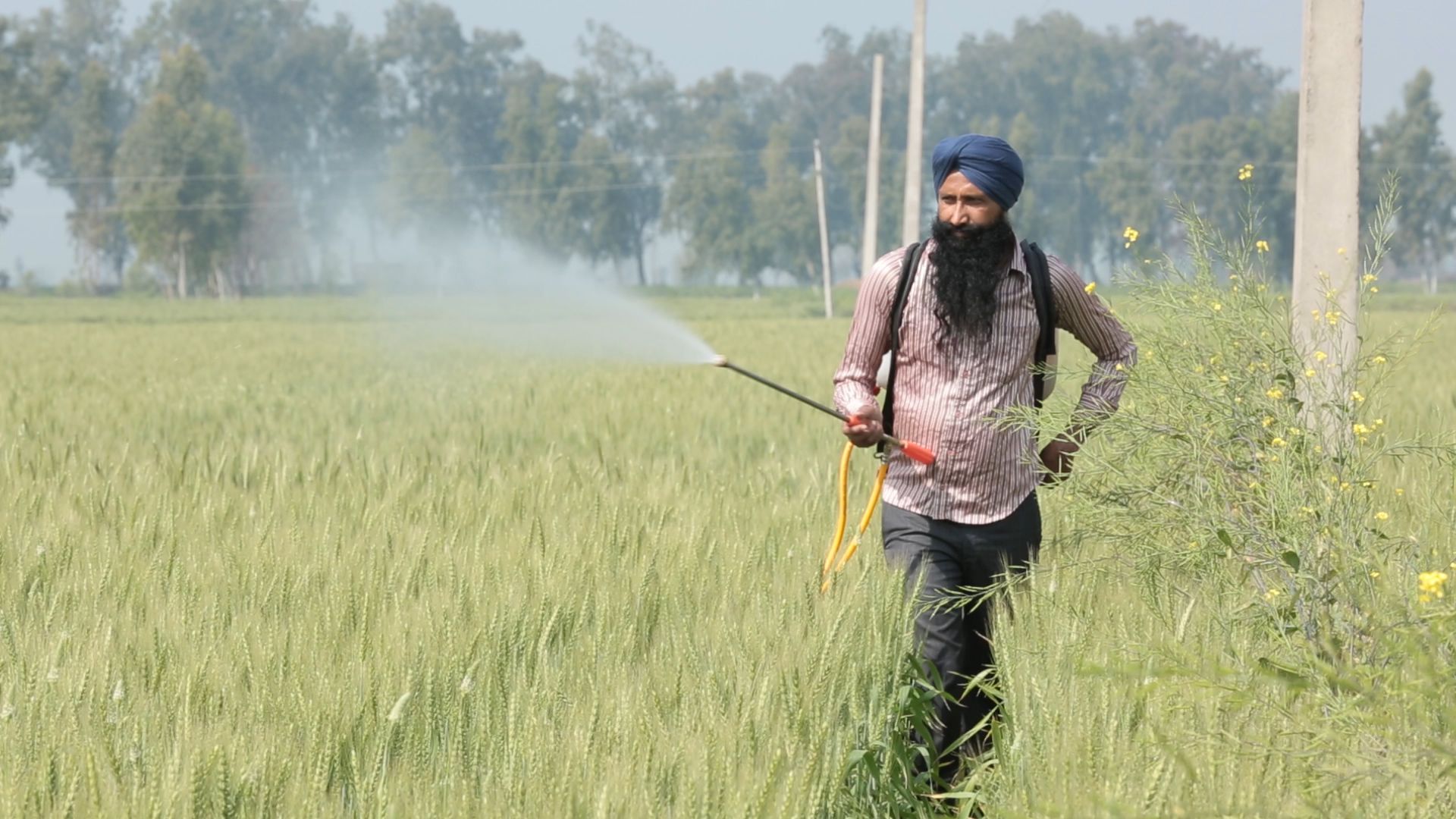United Nations to assess Bayer and Syngenta’s adherence to international standard on pesticides management
April 7, 2017

Berlin/Delhi, 7th April 2017: Organizations from Europe and Asia submitted a complaint to the Food and Agriculture Organization of the United Nations in October 2015 on the marketing of hazardous pesticides by Bayer and Syngenta in Punjab/India. Pesticides are sold without adequate labels, available protective clothing, and proper training of the farmers and dealers as the report shows. A video containing farmers’ testimonies was submitted as additional evidence to the FAO and is only released today. This little-known monitoring mechanism is now used for only the third time. The FAO will assess companies’ adherence to the Code of Conduct on Pesticide Management during its annual meeting of the Panel of Experts in New Delhi from 10th to 13th of April and invited the coalition to present its view.
Based on the findings in the report we urge the FAO Panel of Experts to recommend:
- to Bayer CropScience and Syngenta to withdraw all pesticides products with inadequate labels from the Punjabi market, to refrain from selling pesticides if the availability of adequate protective equipment cannot be guaranteed and to enable adequate training of farmers and dealers. A compliance report on measures taken should be prepared and submitted to the next session of the Panel of Experts.
- To the Government of India to prohibit the importation, distribution, sale and purchase of highly hazardous pesticides and to enforce its national legislation through which it can impose sanctions when companies do not adequately label the hazardous chemicals.
- To the governments of Germany and Switzerland to collect and record data on export of pesticides, to assess the extent of possible negative effects on human and animal health and/or the environment and to revise their export laws where needed to effectively prohibit exports that present a danger to human health and a sound environment.
- To all stakeholders to organize concrete remedial measures for the dire health and environmental situation faced by farmers in Punjab including e.g. medical assistance to affected individuals.
The matters addressed in the ad-hoc monitoring report require an immediate response as they relate to severe impacts on human health and the environment reported from Punjab. Already 18 months have elapsed since the submission of the report and it is the Panel of Experts who now has the chance to strongly advocate for the improvement of company conduct with a view to better the lives of thousands of farmers.
A delegation of ECCHR, Kheti Virasat Mission und PAN AP are present during the JMPM and available for Interviews.
Contact ECCHR: Anabel Bermejo, bermejo@ecchr.eu, 0049 (0) 6981 9797
Contact Public Eye: Laurent Gaberell, laurent.gaberell@publiceye.ch, 021 620 06 15

